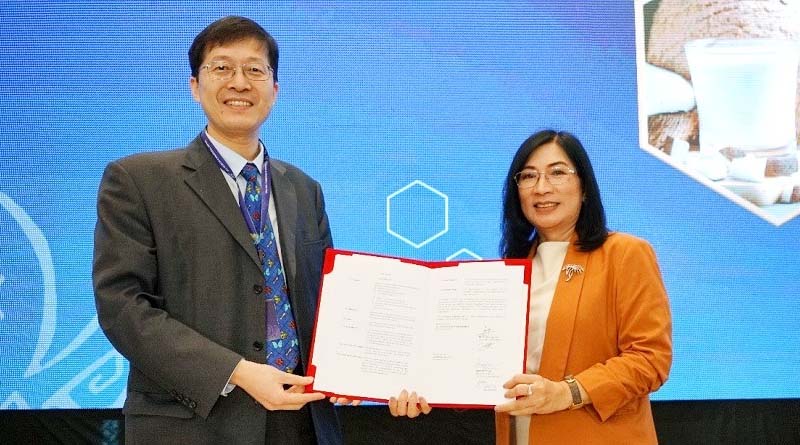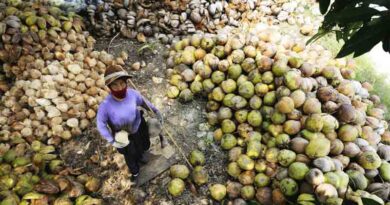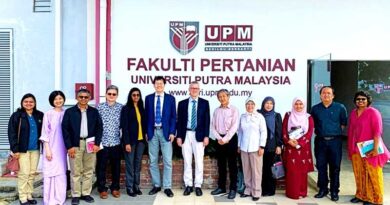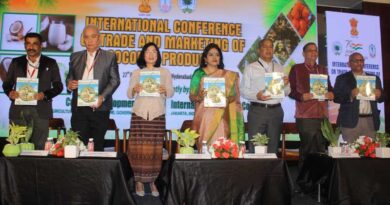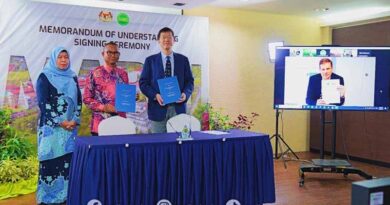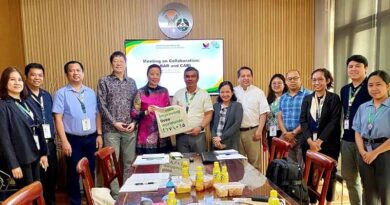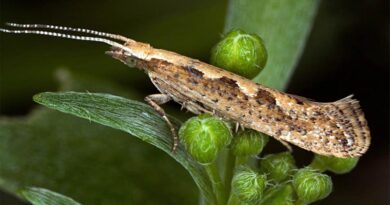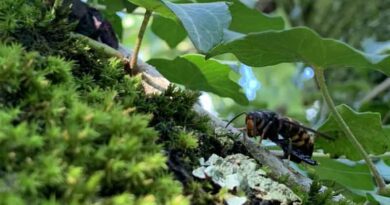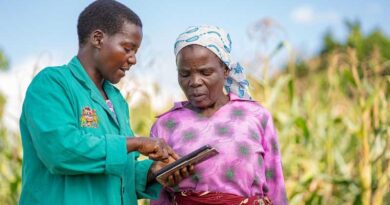CABI strengthens partnership with ICC for sustainable development of the coconut sector
09 February 2024, Africa: CABI has renewed its Memorandum of Understanding (MoU) with the International Coconut Community (ICC) to support the sustainable development of the coconut sector in Asia, the Pacific, Caribbean, Africa, and South America.
Dr Feng Zhang, Regional Director of CABI East & South-East Asia, signed the agreement with Dr Jelfina C. Alouw, Executive Director, ICC, at the 59th ICC Session & Ministerial Meeting held in Bandar Lampung, Indonesia.
The agreement signing was witnessed by Mr Reza Pahlevi Chairul, Director for Interregional and International Organization Negotiation, Ministry of Trade Indonesia, as well as representatives from member countries.
Dr Jelfina Alouw said, “The MoU follows the renewal of the commitment to collaborate with the Asian and Pacific Coconut Community (APCC, now ICC) in 2017 to facilitate scientific exchange and conduct research and development in areas of mutual interests.
Both sides also signed a Letter of Agreement for Technical Cooperation in 2021, leading to development of an information portal for major pests and diseases of coconut.
“It is high time to renew the agreement to make full use of strength of both organisations, working in complementary knowledge and expertise to jointly develop technically viable, economically feasible, socially accepted and environmentally safe technologies on pest management sustainably.”
Crops are threatened by a range of pests and diseases
According to the ICC, the global coconut industry was worth $15,891.2 million in 2023 and it is projected to reach $21,875.4 by 2028. However, crops are threatened by a range of pests and diseases such as lethal yellowing disease, root wilt, the Bogia disease, coconut rhinoceros beetle, black and red palm weevils, and coconut scale insect.
Potential joint activities and collaboration with the ICC – which has 21 coconut producing member countries for over 90% of world coconut production and exports of coconut products – may include capacity building workshops on pest risk analysis to strengthen the knowledge of extension and research staff.
Digital advisory tools to assist in the preparedness and response
Other areas of collaboration might also see the two parties developing and adapting digital advisory tools to assist in the preparedness and response to pests of coconut more sustainably as part of an Integrated Pest Management (IPM) plan.
This includes the use of, for example, the CABI BioProtection Portal, which is an open access tool that provides users with information about registered biocontrol and biopesticide products in their country.
The MoU may also see CABI, and the ICC, jointly seek funds for collaborative projects and access to selected publishing products – such as the Crop Sprayer App – that can further help in the safe and efficient use of pesticides to control coconut pests.
Dr Feng Zhang said, “Eleven of CABI’s Member Countries are also members of the ICC, so there is already a commitment to helping smallholder farmers grow healthier and more profitable crops free from crop pests and diseases.
“We are pleased to renew of agreement with the ICC to further help members of both organisations tackle the full range of coconut pests that can not only impinge on the livelihoods of communities but also food security.
“We will do this by advocating, where possible, safer-to-use and environmentally sustainable biological control agents as part of an IPM plan that may also consider the responsible and efficient use of chemical pesticides.”
Sharing of information and knowledge on best practices
Dr Zhang added that an important aspect of the agreement will be the continued sharing of information and knowledge on best practices along the coconut value chain.
This includes the increased use of digital tools such as the information portal Cocopest that was launched at the 58th International Coconut Community (ICC) Session & Ministerial Meeting.
The resource, which has been developed by CABI and financially supported by the ICC, brings together information from journals, books, and abstracts in one central place for the first time.
It currently features 20 datasheets with details on taxonomic, distribution, damage symptoms, detection and inspection, and prevention and control methods for 13 insects, two bacteria, two fungi, one virus and two mites that can impact upon coconut production.
Dr Alouw also strongly encouraged ICC member countries to use the Cocopest portal, sourcing pest information and accessing a network of taxonomic experts to assist in pest identification and diagnostic.
The ICC member countries include eight Asian countries: India, Indonesia, Malaysia, Philippines, Sri Lanka, Thailand, Vietnam, and Timor Leste, nine Pacific countries: Federated States of Micronesia, Fiji, Kiribati, Marshall Islands, Papua New Guinea, Samoa, Solomon Islands, Tonga, and Vanuatu, one Caribbean country: Jamaica, two African countries: Kenya and Cote d’Ivoire, and one country in South America: Guyana.
Also Read: Agri-input industry reacts to Union Budget 2024
(For Latest Agriculture News & Updates, follow Krishak Jagat on Google News)

